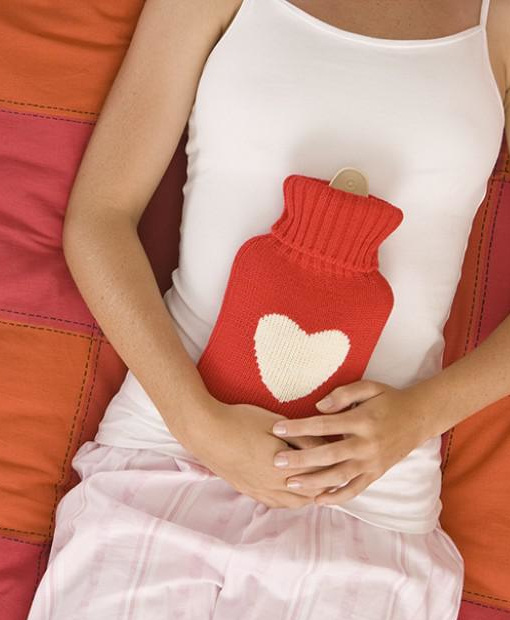Unsuccessful IVF
According to statistics, over 50% of all IVF procedures are unsuccessful. These rates are considered entirely natural, as even in a natural cycle, not all women succeed in becoming pregnant on the first try. Unsuccessful IVF is not a reason to despair or give up. Thanks to their extensive experience and high qualifications, the fertility specialists at the K+31 Clinic most often achieve the desired result during repeated infertility treatment.

specialists

equipment

treatment

Causes of unsuccessful IVF
Psycho-emotional depression is one of the most negative consequences of an unsuccessful first IVF attempt. These mental health issues can become an obstacle to conceiving a child in future attempts. The fertility specialists and psychologists at the K+31 clinic closely monitor the physical and mental health of their patients. This allows them to accurately determine what went wrong and address the issue in the next IVF cycle.
As already noted, success after the first IVF attempt is rare. The probability of conception in the first cycle usually does not exceed 40%.
Signs of unsuccessful IVF:
- Physiological unpreparedness of the body for conception
- Age and lifestyle factors
- Genetic and cellular abnormalities
- Deontological and iatrogenic factors
Each of the above categories of causes has its own characteristics. In most cases, they can be eliminated with medication, adherence to a regimen, and a professionally developed ART plan.
Physiological causes
In 73% of cases, unsuccessful IVF is the result of insufficient preparation of the mother's body for conception. Disruptions in the functioning of the reproductive system are one of the key causes of infertility. Physiological causes of ART failure include:
- Pathological changes in the endometrium
- Autoimmune disorders
- Hormonal imbalances
- Fallopian tube abnormalities
- Ovarian failure syndrome
- Lack of response to hormonal therapy
- Latent infections
Menstrual irregularities and insufficient steroid hormone levels in the blood prevent the embryo from implanting in the uterine wall. Consequently, this leads to IVF failure.
Age-Related and Age-Related Causes
With age, the body's reproductive activity declines, reducing the chances of conceiving with IVF. Common causes of unsuccessful IVF include:
- Patients over 40-45 years of age
- Unhealthy lifestyle
- Poor family climate
- Excess weight
- Failure to follow doctor's recommendations
- Bad habits
Patients should understand that after IVF, it is advisable to avoid contact with others and subject themselves to excessive physical and psycho-emotional stress. In the first 14 days after the procedure, this can lead to miscarriage or a stillbirth.
Cellular and Genetic Abnormalities
A first IVF failure may be due to poor quality of the biomaterial used during the procedure:
- Poor oocyte and sperm quality
- Insufficient embryo viability
- Chromosomal disorders
If the failure is due to poor quality of male or female gametes, the reproductive specialists and embryologists at the K+31 clinic prescribe hormonal therapy. This therapy helps normalize spermatogenesis in men and the menstrual cycle in women.
Deontological and iatrogenic causes
Pregnancy may not occur due to insufficient professionalism of doctors and poorly performed procedures. It's important to understand that the likelihood of conception after IVF depends largely on the accuracy of the IVF protocol and the professionalism of the specialists. The quality of the diagnostic and laboratory equipment used also plays a significant role.
The K+31 clinic employs reproductive specialists, andrologists, and other specialized professionals with extensive experience. They use expert-grade medical equipment to determine the causes of infertility in couples. In vitro fertilization of oocytes with sperm is performed in a modern laboratory, significantly increasing the viability of the resulting embryos.

What to do next?
After their first IVF attempt, couples shouldn't despair or become despondent. A first failure doesn't necessarily mean they won't be able to conceive with subsequent IVF treatments. The first thing couples should do after IVF is calm down and begin planning a second IVF attempt.
To increase your chances of success, K+31 Clinic specialists recommend:
- Consider the mistakes made last time
- Undergo a follow-up examination and hormone therapy
- Normalize your diet and quit bad habits
- Restore your menstrual cycle and stabilize your psycho-emotional state
Physiotherapy treatments, such as acupressure, hydrotherapy, mud therapy, etc., can be used to restore the body after IVF. All of this helps normalize the function of vital organs and the reproductive system, thereby increasing the likelihood of a successful IVF outcome.

Tests after unsuccessful IVF
After an unsuccessful IVF cycle, it is essential to determine the reasons for the failure, undergo tests, and undergo examinations. Many specialists recommend changing the treatment regimen and adjusting the ovarian stimulation protocol to achieve pregnancy after unsuccessful IVF.
After an unsuccessful IVF cycle, the following tests are prescribed:
- Anti-hCG antibodies
- Blood test for antiphospholipid antibodies
- Serum blocking factor
- Karyotype
- Blood test for lupus anticoagulant
To rule out endometrial diseases, specialists at the K+31 Clinic recommend a hysteroscopy. The structure and size of the uterus largely influence the success of the embryo transfer.
Unfortunately, in addition to endometrial issues, there are many other factors that can affect the outcome of IVF, including:
- Hormonal issues
- Excess weight
- Fallopian tube pathologies
- Genetic and immune pathologies
Tests after unsuccessful IVF will help more accurately identify the problem and improve the chances of success in subsequent treatments. The most important thing to remember is your emotional state. Don't despair or give up; a positive attitude, faith in a successful outcome, and strict adherence to all specialist recommendations will definitely yield a positive result!
Our doctors

This award is given to clinics with the highest ratings according to user ratings, a large number of requests from this site, and in the absence of critical violations.

This award is given to clinics with the highest ratings according to user ratings. It means that the place is known, loved, and definitely worth visiting.

The ProDoctors portal collected 500 thousand reviews, compiled a rating of doctors based on them and awarded the best. We are proud that our doctors are among those awarded.
Make an appointment at a convenient time on the nearest date
Price
Other services

































Unsuccessful IVF attempt
More than 35% of women who undergo IVF fail to conceive on their first attempt. The highest rate of IVF failure is observed in patients undergoing assisted reproductive technologies (ART) for the first time. It is also known that even after several IVF attempts, many couples spontaneously conceive a child naturally and become parents.
Ineffectiveness of the protocol in most cases indicates serious abnormalities in the functioning of the woman's reproductive system. Physiological barriers to conception and carrying a child to term are the most common cause of unsuccessful IVF attempts.
Women often neglect the recommendations of fertility specialists regarding the regimen after the final stage of ART. The specialists at K+31 Clinic consult their patients during the pregnancy planning stage and after IVF. A disciplined approach by expectant mothers significantly increases the chances of embryo implantation and pregnancy.